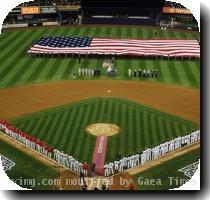Union moves deadline for Philly transit strike tol 6 p.m. Saturday, hours before World Series
By Maryclaire Dale, APSaturday, October 31, 2009
Philly transit talks to continue into Saturday
PHILADELPHIA — A union representing more than 5,000 transit workers agreed early Saturday to extend the deadline for a strike that could disrupt bus and subway services during the World Series games in Philadelphia.
The union had threatened to go on strike as early as 12:01 a.m. Saturday if talks with Southeastern Pennsylvania Transportation Authority did not reach some accord. But after that deadline came and went, Allison Cooper, vice president of Transport Workers Local 234, said the group agreed to a request from Gov. Ed Rendell that it continue negotiations until 6 p.m. Saturday.
“There is no strike right now,” Cooper said early Saturday. “We are going to continue to talk until 6 p.m.”
The union membership voted Oct. 25 to authorize a strike. The new deadline would be about two hours before the start of Game 3 between the Phillies and the New York Yankees.
SEPTA spokesman Richard Maloney said he could not immediately comment on any extension of the talks.
The Phillies and Yankees are scheduled to play the third, fourth and fifth games of the Series on Saturday, Sunday and Monday in Philadelphia. About 8,000 people typically take SEPTA to the baseball stadium for games, Maloney said.
The vast majority of the 810,000 people who use SEPTA buses, subway lines and trolleys are trying to get to work, not the World Series.
The union represents bus drivers, subway and trolley operators, and mechanics who make an average $52,000 a year. They are seeking an annual 4 percent wage hike while SEPTA is offering no raises in the first two years and 2 percent raises in the final two years of a four-year contract.
On health care, the union wants to keep its current contribution of 1 percent of salary, or about $10 a week on average. SEPTA wants to raise the contribution to 4 percent, noting that the contributions of city and state workers are likewise going up.
SEPTA drivers and operators earn $14.54 to $24.24 an hour, and reach top pay after four years. Mechanics make $14.40 to $27.59 an hour, SEPTA said. Their contract, which expired in March, has a no-layoff provision.
Ridership has fallen by about 37,000 people a day since July, perhaps because of the high unemployment, Maloney said. The base fare is $2.
About 41 percent of SEPTA’s $1.13 billion operating budget comes from revenues and the rest from subsidies.
A 2005 SEPTA strike lasted seven days, while a 1998 strike hampered the transit system for 40 days.
“I wouldn’t be able to get to work,” said Tonia Gaskins, 34, who makes two round trips on SEPTA each day as she juggles two waitress jobs. “I could catch a bus, but it would take twice as long, and I really don’t have the time.”
Associated Press Writer Patrick Walters contributed to this story.
Tags: Labor Issues, Mass Transit Systems, New York, New York City, North America, Pennsylvania, Philadelphia, Phillies And Yankees, Professional Baseball, Septa strike, Transportation, United States

